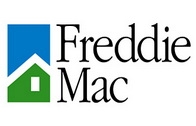Advertisement
Freddie Mac releases results of 26th Annual ARM Survey

Freddie Mac has released the results of its 26th Annual Adjustable-Rate Mortgage (ARM) survey of prime loan offerings. The survey, conducted January 4 to January 8, found that lenders who offer adjustable-rate mortgages (ARMs) find hybrids far more popular with borrowers than annually adjusting ARMs.
“Fixed-rate lending has dominated the home mortgage market over the past year because of the 50-year low in interest rates for this product and the comfort that a fixed principal-and-interest payment assures the consumer,” said Frank Nothaft, Freddie Mac vice president and chief economist. “While ARM lending has been limited, those consumers who prefer an ARM generally have many lenders and products to choose from. The most offered product in the survey was the 5/1 ARM, where more than four out of five ARM lenders quoted rates. The 5/1 hybrid has a fixed rate for five years and then adjusts annually afterwards.”
ARMs originally became popular during the late 1970s and early 1980s when inflation and long-term interest rates were high. In 1984, the ARM share of home purchase loans topped 62 percent, according to the Federal Housing Finance Agency. Recently, however, overall inflation and interest rates on fixed-rate loans have been very low. In 2009, the ARM share of purchase-money conventional loans averaged just three percent and was the smallest annual share since 1982 when the series began.
Traditionally, the one-year ARM, which adjusts every year, dominated the ARM market. As early as 1997, all ARM lenders offered a conforming one-year ARM. Yet in 2009, only 23 percent of ARM lenders offered this product (up slightly from 21 percent in 2008). In addition, lenders offering a similar jumbo ARM (loan amounts that exceed Freddie Mac’s statutory loan limits) fell from 35 percent in 2008 to 23 percent in 2009, and just a couple of lenders quoted a one-year ARM with FHA insurance; only one percent of FHA loans issued were ARMs during its fiscal year ending Sept. 30, 2009.
After the 5/1 hybrid, the next most commonly found product in the ARM market was the 3/1 hybrid, which was offered by three out of five lenders. Another 3-year option is the 3/3 ARM, which adjusts every third year and is indexed to the 3-year Treasury yield, but only 7 percent of lenders offered it.
Longer-term hybrid products, such as the 7/1 and 10/1 ARMs, were also available from lenders, consisting of 55 percent and 24 percent of the survey participants, respectively. Because of the long initial fixed-rate period (7 or 10 years), the initial interest rates were priced close to or slightly above the rate on a 30-year fixed-rate loan. In general, the initial interest rate rises with the length of the initial fixed-period across the array of hybrid ARM products.
Notes: The sample is limited to ARMs indexed to either the 1-year or the 3-year constant maturity Treasury (CMT) yields. Data were collected from 117 ARM lenders during the week ending Jan. 7, 2010. The 3-year, 5-year, 7-year and 10-year ARM results are limited to conforming loans for prime borrowers. The initial discount is based on the value of the weekly average 1-year or 3-year CMT yield for the comparable week ending January 7, 2010. The “Fixed-Adjustable Rate Spread” is the average interest rate on a 30-year conventional conforming fixed-rate mortgage less the initial rate on the ARM using Freddie Mac’s Primary Mortgage Market Survey.
For more information, visit www.freddiemac.com.
About the author





